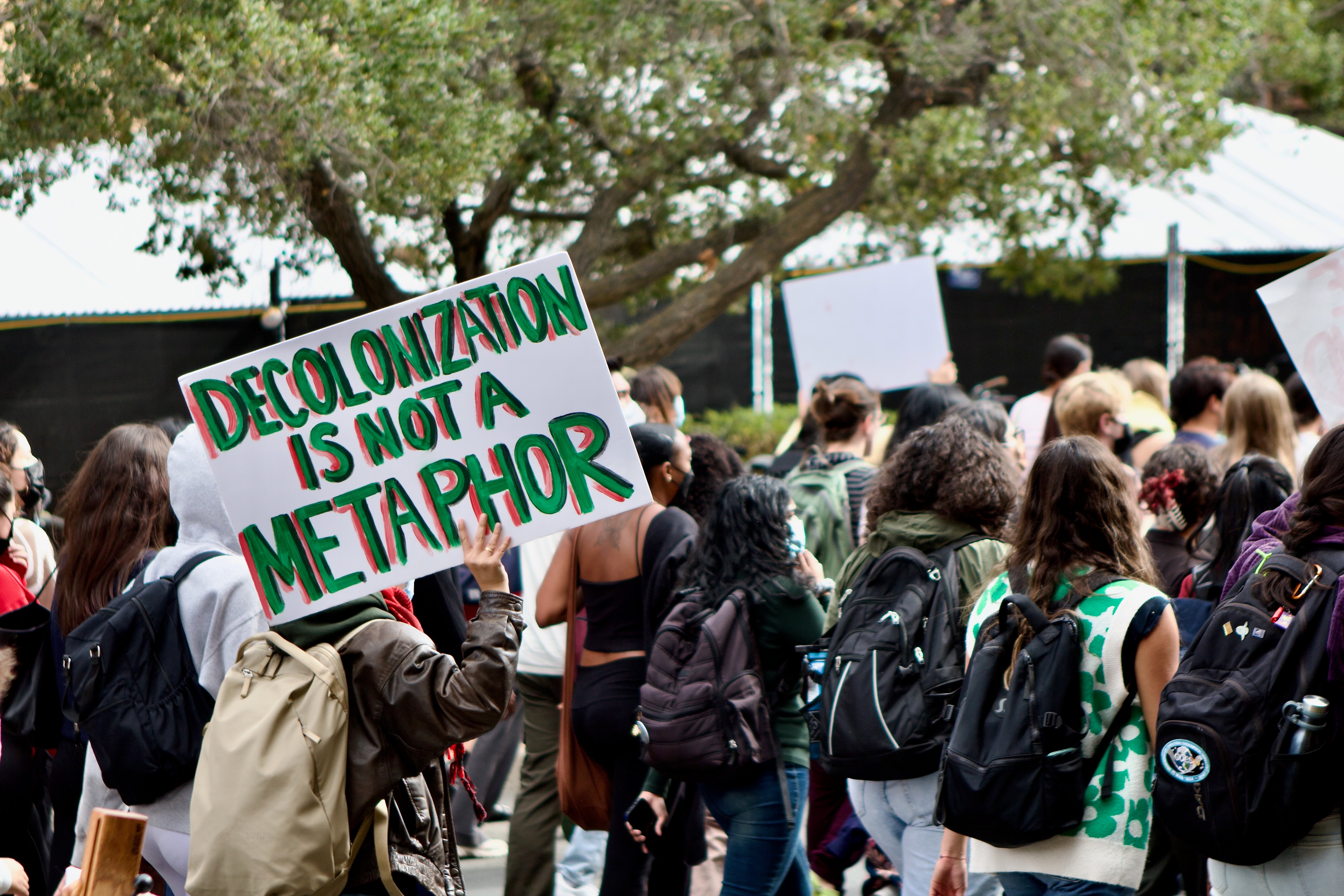The Stanford Board of Trustees’ Special Committee on Investment Responsibility (SCIR) announced its decision on Tuesday to take “no action” on a divestment petition submitted by Stanford Students for Justice in Palestine (SJP) earlier this year. The May 6 petition called for the University to divest from defense companies tied to the Israel Defense Forces (IDF).
The decision comes as a setback for pro-Palestine activists on campus, who have called for the University to sever ties with the state of Israel and weapons manufacturers such as Raytheon and Lockheed Martin amid the Israel-Gaza war.
On Oct. 7, 2023, Hamas launched armed attacks on Israel, prompting Israeli President Benjamin Netanyahu to order retaliatory strikes on the Gaza Strip. Since then, the region has been subject to near-constant attacks. To protest the war, in light of alleged Israeli war crimes, a group of Stanford students began a 120-day sit-in last October, demanding the University divest from all Israeli-funded institutions and companies and issue a statement calling for a ceasefire.
“The petition was received last May and given the gravity of the issue, the Board took time during the summer quarter to review the issue and prioritized their decision during the first full Board of Trustees meeting of this academic year,” University spokesperson Mara Vandlik wrote in an email to The Daily.
In a Thursday Instagram post, SJP criticized the Board’s decision as “cowardly and complicit,” writing, “The student intifada does not end with a singular administrative rejection.”
The Daily has reached out to SJP for comment.
In a letter sent to SJP delivering the decision, the Committee cited its Statement on Investment Responsibility, quoting from it verbatim: “Just as the University does not take positions on partisan or political issues, the Trustees maintain a strong presumption against using the endowment as an instrument to advance any particular social or political agenda.” The SCIR also rejected SJP’s request to make the University’s endowment investments public.
In their Instagram post, SJP criticized the committee’s reference to the Statement on Investment Responsibility, given a clause that identifies apartheid and genocide as “ethically unjustifiable” activities that warrant the University’s disassociation from companies. SJP and other pro-Palestine groups hold the position that the state of Israel is committing both crimes against Palestinians.
The petition submitted by SJP included requests for Stanford’s endowment to divest from major defense companies, full disclosure of Stanford’s assets, the termination of “donations, grants, or contracts” from Israeli funders and the creation of elected SCIR positions for students.
The SCIR rejected each of these terms, referencing the “‘avoidance of institutional orthodoxy’ as a critical principle that supports Stanford’s environment of free inquiry.”
The Committee also referenced a 2015 Board decision on an SJP divestment proposal concerning companies that did business in Israel. The Board’s previous rejection cited similar reasons, namely that “the University’s mission and its responsibility to support and encourage diverse opinions would be compromised by endorsing an institutional position on either side of an issue as complex as the Israel-Palestine conflict.”
The process of evaluating SJP’s petition began with a review by the SCIR, who consulted the Board of Trustees and other University administration. According to the SCIR, the Board initiated “a wide range of interactions through student and staff engagement over the past 6 months.”
In its statement, the SCIR acknowledged that “the events in Gaza and Israel have been a deep source of division in the Stanford community. The evidence of this division is extensive: Our campus has witnessed competing marches and protests, competing installations on White Plaza, and extensive debate in social media, campus events and other venues.”
The SCIR letter also drew a connection to recent reports by the University’s Muslim Arab and Palestinian (MAP) Communities Committee and the Subcommittee on Antisemitism and Anti-Israeli Bias (ASAIB). The committees identified instances of the University silencing Palestinian communities and “widespread and pernicious” antisemitism, respectively.
